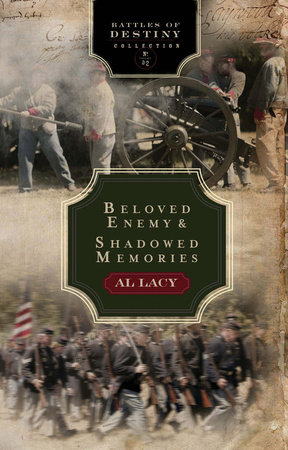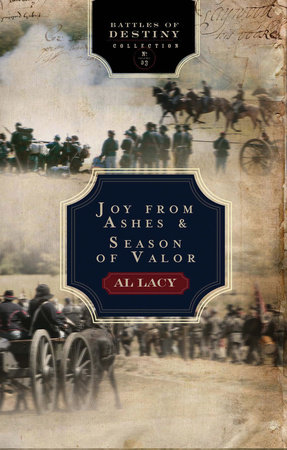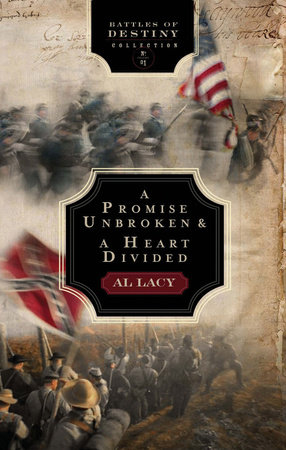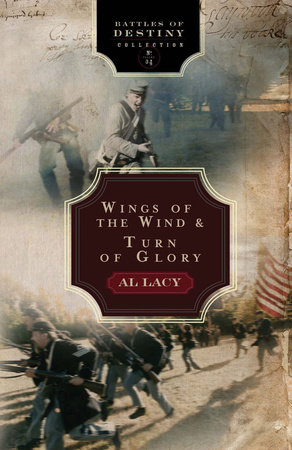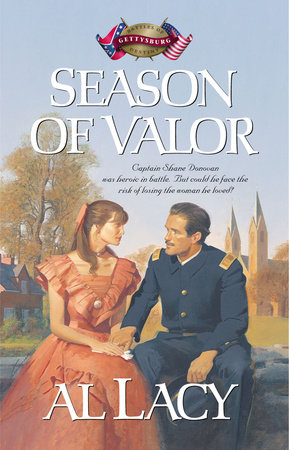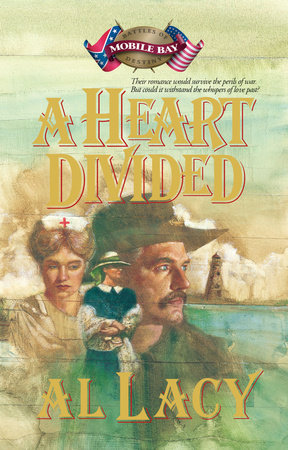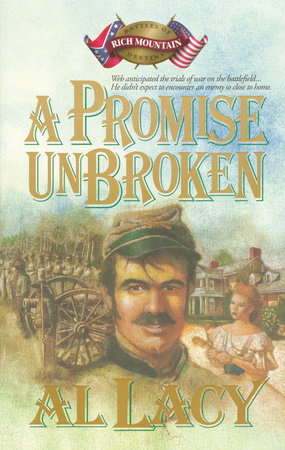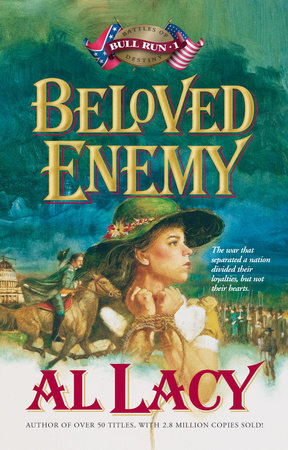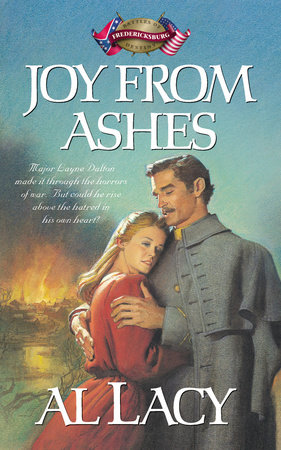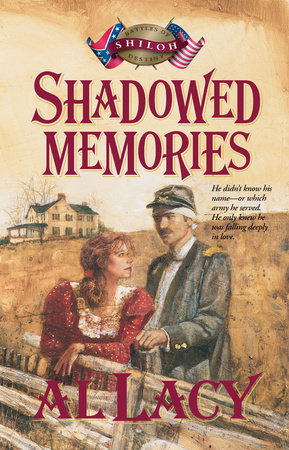Excerpt
Battles of Destiny 2-in-1 Vol. 2
A cool and quiet resolve filled him as he descended the stairs of Springfield’s Illinois Hotel, shouldering into his overcoat. Feeling the weight of the two revolvers in his shoulder holsters, he approached the desk, hat-in-hand.
The slender, middle-aged clerk looked down at the small uniformed man, smiled and said, “Good morning, Colonel.”
Laying his hat on the counter and pulling his wallet from his hip pocket, Colonel Elmer Ellsworth smiled in return. “Good morning.”
“So this is the day, eh?” remarked the clerk.
Ellsworth’s dark eyes ran to the calendar that hung on the wall behind the desk. Bold letters displayed the date: February 11, 1861.
Nodding, he said, “This is the day. If you’ll tally up my bill, I’ll be on my way.”
“There’s nothing to tally, Colonel.”
“Pardon me?”
His smile broadening, the clerk replied, “You met our manager, Mr. Spalding, last week, I believe.”
“Yes. Very cordial man, I might say.”
“Well, Mr. Spalding left Springfield for Chicago on business yesterday, but before he left, he told me that your bill was on the house. There’ll be no charge.”
“But I’ve been here for nearly two weeks. It really isn’t right that I should–”
“Mr. Spalding said to tell you that what you’re doing to protect Mr. Lincoln is pay enough to more than cover your bill, Colonel. We love Congressman Lincoln–or I should say
President-elect Lincoln. With all the threats that have been voiced against him, we are most grateful that he has someone like you looking out for him.”
“I appreciate that, sir,” smiled Ellsworth. “I assure you, and you can assure Mr. Spalding, that I am determined to get Mr. Lincoln to Washington safely. I’ve hired Allan Pinkerton and a host of his detectives to provide additional protection along the way, and I’ve laid out a plan in coalition with General Winfield Scott for military protection in addition to the Pinkerton men on Inauguration Day. We are not taking the Secessionists’ threats of assassination lightly.”
“I’m glad,” nodded the clerk. “I understand, though, from what I’ve read in the newspapers, that Mr. Lincoln has not taken the threats seriously. Is this true?”
“I’m afraid so.”
“Has he approved of all this protection you are providing?”
“He balked when I first told him what I had in mind, but Mrs. Lincoln put the pressure on him. That’s all it took. When he saw the tears in her eyes, he gave in.”
“God bless Mrs. Lincoln,” said the clerk.
Ellsworth returned his wallet to its place and picked up his hat. “You be sure to thank Mr. Spalding for me.”
“I will do that, Colonel. God speed. We need Mr. Lincoln in the White House to pull this nation together.”
“Yes, we do,” agreed Ellsworth. “I believe when the Secessionists hear his Inauguration Address and understand his intentions for this country’s future, they just might take another look at the situation.”
“I certainly hope so,” said the clerk.
“And even if they don’t, Mr. Lincoln is the man to lead us if civil war comes.”
The clerk shook his head sadly. “Oh, I hope that doesn’t happen, Colonel. I hope that doesn’t happen.”
“So do I. But if it does, I’m glad Mr. Lincoln will be at the helm.”
Donning his hat, Ellsworth nodded toward the clerk and headed for the door. When he stepped outside, the cold wind knifed through his coat all the way to his bones. He pulled up his collar and walked toward the carriage that awaited him.
It was dawn, but the heavy gray clouds that covered the sky allowed little light. Snow was falling and the driving wind gusted it along the street. Bending his head against the wind, Ellsworth looked up at the driver, wrapped in a blanket, and asked, “You haven’t been waiting long, have you, Charles?”
“No, sir. Just a few minutes.”
“I assume the bell boy brought my luggage to you.”
“Yes, sir. You’ll find it inside.”
Climbing in behind the driver’s seat, Ellsworth said, “Let’s go. I have to have the Lincolns at the depot by seven thirty.”
As the carriage pulled away from the hotel and headed down the snow-covered street, Ellsworth brushed snow from his hat and coat and settled back for the ride across the city to the Lincoln home.
Colonel Elmer Ellsworth, who stood barely over five-feet-five and weighed 135 pounds, had earned his rank two years previously at the unheard-of age of twenty-two. His name was a synonym for patriotism to millions of Northerners. In a time when virtually every town in the northeast sponsored its own volunteer militia, the diminutive colonel was America’s foremost parade-ground soldier and, in the popular imagination, the army’s most promising military talent.
Stationed in Utica, New York, Ellsworth gained popularity as commander of the U.S. Zouave Cadets, whom he had transformed from a lackadaisical group of Northern soldiers into the national-champion drill team. He modeled his unit after the French Zouaves of Crimean War fame, dressing his men in bright-colored baggy-trousered uniforms. He developed his own variations of the Zouave drill, featuring hundreds of maneuvers with musket and bayonet.
In the summer of 1860–with the threat of civil war in the air–Ellsworth toured twenty cities in the northeast, challenging men to sign up in the U.S. army. He became a celebrity overnight. Newspaper and magazine writers lionized him, women idolized him, and politicians sought his friendship.
Ellsworth had followed Abe Lincoln’s political career from a distance and became a great admirer. It was while demonstrating his drill team at Springfield in June of 1860 that they met. Lincoln took an instant liking to the brilliant young colonel and invited him to his home. Mrs. Lincoln and their two sons, Willie and Tad–ten and eight at that time–also were drawn to Ellsworth’s warm and bright personality. When summer was over and the drilling demonstrations ceased, the youthful Zouave leader was invited back to the Lincoln home.
He returned on several occasions and was always welcomed, especially by the Lincoln boys because he would never fail to play “war” with them. Ellsworth was so close to Willie and Tad that he caught the measles from them. He was especially drawn to bright-eyed Tad, whom he called, “Mr. Personality.”
Because of his love for Abraham Lincoln, Ellsworth campaigned for him in the 1860 election. Lincoln acknowledged that the “little colonel” had a great deal to do with his winning the election.
When the president-elect gave in to Ellsworth’s protection plan, the young colonel also announced that he would be Lincoln’s personal bodyguard on the trip from Springfield to Washington. Knowing that argument would be useless, Lincoln had quietly accepted.
The icy wind had eased some as the carriage pulled up in front of the huge two-story house, but snow was still falling. Two larger carriages were there, which would carry the six Pinkerton men and the Lincoln family’s luggage to the depot.
It was a comfort to Ellsworth to see the grim-faced detectives huddled on the front porch. Heads turtled into their coat collars, they nodded at the young colonel as he mounted the snow-crusted steps. Even as Ellsworth, each man wore two revolvers in shoulder holsters.
“Good morning, gentlemen,” Ellsworth said. “Are they about ready?”
“Yes, sir,” answered the detective in charge. “Miss Winters just stuck her head out to say that it would be about ten minutes.”
Before Ellsworth could knock, the door came open and a happy, childish voice exclaimed, “Uncle Elmer!”
“Hello, Tad!” laughed Ellsworth as the boy wrapped his arms around his neck.
Moving inside with the nine-year-old in his arms, Ellsworth closed the door just in time to brace himself for eleven-year-old Willie, who dashed up and hugged him.
Mary Todd Lincoln entered the vestibule, smiled and said, “Elmer, those boys will rub the hide off you.”
The small man laughed. “Can’t happen, ma’am. I’m a tough-hided Zouave, remember?”
Mrs. Lincoln laughed also, then said, “Boys, get your coats on.”
Letting go of their adopted uncle, Willie and Tad hurried to a nearby closet.
The boys’ governess, Patricia Winters, appeared at the top of the staircase, carrying her coat and hat. At twenty-two, Patricia was yet unattached. She liked the handsome colonel, but because she stood an inch taller, had never shown anything more than friendship. Leaning against the railing, she smiled, “Good morning, Colonel.”
“And good morning to you,” Ellsworth responded, sweeping off his hat and making a bow.
“Mrs. Lincoln, is there anything up here you were planning to take along?” Patricia asked.
Smiling up at the governess, Mary said, “No, honey. Everything I wanted to take is already in the suitcases and trunks.”
“How about our toys?” Tad butted in while slipping into his coat.
“They’re all packed,” replied Mary.
“Don’t worry about that, Tad,” spoke up Ellsworth. “I brought something that’ll keep you boys busy on the train.”
“What is it?” Tad asked, eyes wide.
“You’ll see,” chuckled the colonel.
At the same time Patricia reached the bottom of the staircase, the president-elect appeared, carrying a valise, and started down the stairs.
“Good morning, sir,” said Ellsworth.
A smile broke on Lincoln’s craggy face. “Good morning, Elmer. I saw from my window that you’ve got your army here.”
“That’s right, sir. Can’t be too careful with all the threats that have been made.”
“Just political claptrap, my boy.”
Lincoln had a warmth about him that made it a pleasure to be in his presence. His dark eyes glowed and sparkled, and though he was anything but handsome, the fire of his genius played on every feature. He had a keen sense of humor and a humble sincerity about him, yet he was obviously a man of rare power and magnetic influence. He was a man of deep moral convictions and possessed the backbone to stick by them. He had a deep resonant voice and eloquent command of the English language. His speech was edged with a slight Kentucky-Southern accent, and whether hearing him in personal conversation or from a speaker’s platform, people found him captivating.
Ellsworth made no reply to Lincoln’s “political claptrap” comment. They had been over the subject many times. Elmer was just glad Mrs. Lincoln had won out.
As the tall Kentuckian was putting on his overcoat and top hat, he said, “Patricia, I assume all the luggage is in the carriages.”
“Yes, sir,” replied the governess, tying a scarf around Tad’s neck. “Everything is ready.”
Mary had her hat on and her husband helped her into her coat. Bending down, he kissed her cheek and said, “Well, Mrs. Lincoln, I guess we’re ready to go.”
Mary ran her gaze over the house and, fighting tears, replied, “Yes, Mr. Lincoln, I guess we are.”
Leaving her Springfield, Illinois, house was not easy for Mary Lincoln. She was a sentimental person and had a close attachment to the place. Her husband had hired a caretaker to watch over their home until the Lincoln family returned, whenever that might be. Mary was proud of her husband and looked forward to living in the White House. But she knew her stay there would not be permanent; she would keep a close attachment to her home in Springfield.
Patricia placed stockingcaps on both boys and pulled them down over their ears. Elmer helped her into her coat.
Tad moved close and said, “You got
two guns on, don’t you, Uncle Elmer. I felt ’em when we hugged.”
“Yes, I do. I’m making sure your daddy gets to Washington safely.”
When they stepped out onto the porch, both boys eyed the Pinkerton detectives. It was impetuous Tad who looked them over and said, “How many guns you guys carryin? Uncle Elmer’s got two under his coat!”
“Tad!” came his father’s sharp voice. “That’s enough.”
The boy knew when his father spoke, he was to obey. He looked up at Ellsworth and asked, “Can Willie and me ride with you, Uncle Elmer?”
“That’s the way I planned it,” grinned the colonel. “You and Willie head for that smaller carriage.”
Snow was still falling as the train chugged out of Springfield at eight o’clock. Lincoln’s private coach was furnished with overstuffed chairs and sofas, leaving an open area in the center. The six Pinkerton men placed themselves strategically with two by the doors at each end, and a man at the windows midway on both sides. When porters brought breakfast trays, they were not allowed inside. Pinkerton agents took the trays at the door.
When breakfast was over and the trays and dishes were stacked on a counter in one corner, Tad said to Ellsworth, “Uncle Elmer, you said you brought something with you to keep me and Willie busy on the train. It must be somethin’ to play with. Can we see it, now?”
“Tad,” came the level voice of the governess, who sat next to Ellsworth on a sofa. “It’s
Willie and
me.”
“I know,” he sighed. “I jus’ forgot. But I said it right on the porch this morning when I asked Uncle Elmer if Willie and me could ride with him in the carriage.”
The Lincolns were sitting together on another sofa, looking on with pleasure. They appreciated the effort Patricia took to teach the boys correct English.
“Willie and
I,” said Patricia, trying to look stern.
“Huh?” said Tad, releasing an infectious smile. “
You didn’t ride with Uncle Elmer. Willie and
I did!”
Patricia could hold it no longer. She broke into a laugh and said, “You little scamp! You know how to say it. You’re just giving me a hard time, aren’t you?”
“Me?” said Tad innocently, pointing to his chest.
The governess laughed again, left her seat, and threw her arms around the boy. While Tad hugged her back, he said, “I love you, Miss Patricia.”
“I love you, too, you little scamp.”
A Pinkerton agent seated at a window grinned at the Lincolns and said, “Quite a charmer, isn’t he?”
The president-elect chuckled, rubbed his stubbled chin, and said, “Yes, he is. He could charm his way into Buckingham Palace and talk Queen Victoria out of her crown. He’s especially successful with the ladies.”
“It’s because he’s such a deceiver,” spoke up Willie, who stood nearby. “Mom let’s him get away with all kinds of things, and so does Miss Patricia.”
“No, sir!” retorted Tad defensively. “I ain’t no deceiver!”
“Tad!” cut in Patricia. “
Ain’t isn’t in the dictionary.”
“It will be when I write one.”
“It’ll be
dumb if you write one,” said Willie.
“Oh, yeah?” snapped the younger brother. “Well, if you wrote one–”
“Wait a minute!” blurted Ellsworth. “Before we get a fight started, let me show you what I brought.”
Rising from the sofa, the colonel picked up a satchel he had carried aboard and opened it. He pulled out a cloth sack and handed it to Willie. “There you go, boys. Take a look inside.”
Willie loosened the draw string on the sack’s neck and said, “Oh, boy! Soldiers!”
As Willie spilled the wooden soldiers onto the floor, Tad said excitedly, “C’mon, Uncle Elmer! Play war with us!”
The hours passed as Abraham Lincoln worked on his inaugural speech at a small desk near the rear of the car. Mary and Patricia sat on a sofa together talking. The Pinkerton men stayed ready and alert for any sign of trouble. And Elmer Ellsworth played war on the floor of the rocking, swaying coach with his favorite “nephews.”
When the train pulled in and rolled to a stop at the Philadelphia railroad station that evening, Allan Pinkerton himself boarded the train with twenty-two more of his men. Pinkerton chatted with Lincoln, explaining that he was leaving nothing to chance. He had planted agents along the rail bed all the way to Washington. He had arranged a series of lantern signals to be used by these agents against the possibility of track sabotage. There were more men waiting at the station in the nation’s capital. In all, Pinkerton had employed over two hundred agents to see that the president-elect arrived safely in Washington.
Arriving without incident in Washington at six o’clock on the morning of February 12, the Lincolns, along with Patricia Winters and Colonel Elmer Ellsworth, were accompanied to the Willard Hotel by Allan Pinkerton and an army of his agents. Pinkerton and a number of his staff would stay in Washington and be a part of Lincoln’s phalanx of protection until Inauguration Day was over.
At breakfast in the presidential suite, Lincoln eyed his boys with admiration, thinking how much they looked alike. Their facial features were very similar, as were their ears, which were overly large like his own. Both boys had mouse-brown hair and hazel eyes.
In personality, the brothers were vastly different. Where Willie was quiet, reserved, and laid back, Tad was high-spirited, boisterous, and aggressive. There was often a fun-loving devil-may-care look in Tad’s eyes that had never appeared in those of his brother. Abraham Lincoln loved them both.
As Lincoln mopped gravy across his plate with a biscuit, he set his quiet eyes on Ellsworth and said, “Elmer, I want to thank you for everything you’ve done to see me safely here. It has taken valuable time from your work with the Zouaves. I really think you should return to New York, now, and catch up on lost time.”
“I can’t argue with you, sir. My work with the Zouaves is important in view of what’s boiling in the South. We need to be ready for combat if war comes. I’d like to be here for the inauguration, but taking all things into consideration, I think I should get back to camp. As far as protection is concerned, you’ll have plenty of that.”
In view of the secession by the Southern states and the strong possibility of civil war, Ellsworth had gone to New York City a few weeks earlier and recruited a regiment of tough volunteers from the New York City Fire Department. He had set up a training camp near Utica, upstate some 250 miles. The colonel called his new regiment the New York Fire Zouaves.
“Thanks to you, I’ll have plenty of protection,” smiled Lincoln. He took a sip of steaming coffee, then said, “I’m going to work hard to avoid war, Elmer, and I hope I’ll be successful. But just in case I’m not, the North must be prepared to fight. I appreciate what you’re doing toward that most vital preparation.”
After breakfast, Colonel Ellsworth hugged his “nephews,” bid the Lincolns and Patricia good-bye, and took a carriage to the railroad station where he caught a train for New York.
Abraham Lincoln spent the next several days receiving an almost uninterrupted stream of visitors, newspaper reporters, and friends in his hotel suite. His most important visitor was President James Buchanan, who came by during the last week of February to work out plans for the day of inauguration.
In the precious private moments allotted him, Lincoln worked hard writing and revising his inaugural speech.
On the cloudy and brisk morning of March 4, the president-elect rode with President Buchanan in an open barouche from his hotel to the Capitol. Mary, the boys, and Patricia followed in a second carriage. Allan Pinkerton’s agents and U.S. troops were everywhere along the route. Squads of sharpshooters were stationed on the roofs along Pennsylvania Avenue. Lincoln, his family, the governess, and Buchanan entered the Capitol through hedges of U.S. marines, alert and armed to the teeth.
A crowd, much larger than expected, was gathering on the east side of the Capitol where a platform had been built out from the steps to the eastern portico, with benches for distinguished guests on three sides.
At precisely one o’clock, Mrs. Lincoln, her sons, and their governess were ushered out of the Capitol onto the platform and seated on a bench near the lectern. U.S. Marines and Pinkerton men surrounded the platform, eyes scanning the crowd for would-be assassins.
Moments later, President James Buchanan appeared with the president-elect at his side. Buchanan, a large, heavy, awkward man, short compared to Lincoln, had to take two steps for one of Lincoln’s to keep up.
Lincoln wore his black top hat, a three-piece black suit, and carried a huge ebony cane with a gold head the size of an egg. Cheers arose from the crowd as he reached the platform. He was a bit pale, but the only discomfort he showed was when he couldn’t decide what to do with his hat and cane.
For a moment, he stood there holding cane in one hand and hat in the other, looking around. Finally, he stood the cane in a corner of the railing, but could not find a place for the hat. Senator
Stephen A. Douglas, who had defeated Lincoln in his bid for a senate seat in 1858, was on the platform. Douglas stepped up and offered to take the hat. Lincoln smiled and handed it to him. Douglas returned to his seat and held the hat in his lap.
Chief Justice Roger B. Taney approached Lincoln, showed him a seat, then stepped to the lectern. Lincoln glanced at his family. Mary gave him a teary smile and the boys waved.
After a few introductory words, Taney called for the presidentelect to come to the podium. Lincoln stood, nodded at Mary, and she hurried to him, taking his arm. When Lincoln moved onto the podium, Mary stayed close, lifting her adoring eyes to his craggy face.
While the crowd watched and listened intently, Abraham Lincoln laid his left hand on a large Bible, raised his right, and took the oath of office. After a prayer by the congressional chaplain, Mary Todd Lincoln returned to her seat. Chief Justice Taney introduced the country’s new president to the crowd and sat down.
As Lincoln stepped up to the lectern and laid out his notes, there were loud cheers, mixed with a few boos and hisses. The eyes of the Marines and Pinkerton agents noted the areas of adversity and watched them carefully.
As the nation’s sixteenth president began speaking, his nerves were taut and his voice slightly constricted. It took only a few minutes for him to overcome the tension, and soon he was waxing eloquent. In his moving address, Lincoln insisted that the Union was perpetual and that the secession by the Southern states was unconstitutional. He made it clear that the Federal government was determined to maintain its authority and would not bend to the whims or demands of the lawbreaking Confederacy. After pointing out the physical impossibility of separation between Americans who occupied the same land, he urged the Southern people to return to their place in the American household.
Pointedly addressing the people of the South, he said, “If it were admitted that you who are dissatisfied hold the right side in the dispute, there is still no single good reason for precipitate action. Intelligence, patriotism, Christianity, and a firm reliance on Him who has never yet forsaken this favored land, are still competent to adjust in the best way all our present difficulty.”
Still directing his words to the Southerners, Lincoln said, “In your hands, my dissatisfied fellow countrymen, and not in mine, is the momentous issue of civil war. The government will not assail you. You can have no conflict without being yourselves the aggressors. You have no oath registered in heaven to destroy the government, while I have the most solemn one to preserve, protect, and defend it.
“I am loathe to close. We are not enemies, but friends. We must not be enemies. Though passion may have strained, it must not break our bonds of affection. The mystic cords of memory, stretching from every battlefield and patriot grave to every living heart and hearthstone all over this broad land, will yet swell the chorus of the Union when again touched, as surely they will be, by the better angels of our nature.”
Lincoln picked up his notes and took two steps backward. There was some applause, but it lacked enthusiasm, and quickly faded.
Amid a few cheers and some well-wishers shouting encouragement to the new president, Abraham Lincoln, his family, and the governess were escorted from the Capitol grounds by James Buchanan and a host of bodyguards. A short while later, Buchanan led them into the White House, gave them a tour, then climbed in a private carriage and bid them a polite farewell.
The Lincoln family and governess stood on the front steps and watched Buchanan’s carriage drive away. When it reached the street and disappeared, Tad ran his gaze over the White House lawn and said, “Look at all that yard! I hope Uncle Elmer will visit us soon so Willie and me can play war with him.”
Silently the president wondered if it would not be long until instead of playing war, Colonel Ellsworth would actually be fighting in one.
Patricia broke the silence by saying, “Willie and
I, Tad.”
Little devils danced in the lad’s eyes as he grinned and said, “You can play war with Willie and Uncle Elmer too if you want, Miss Patricia.”
The president and Mrs. Lincoln laughed as Patricia seized their youngest son by the ear and led him giggling and squealing inside the White House.
That night Mary Todd Lincoln awakened somewhere in the wee hours to find that her husband had left their bed. Worried, she arose, slipped into her robe, and went into the hall. Lanterns burned at both ends of the hall and near the top of the stairs. Moving toward the staircase, she heard a voice coming from one of the bedrooms along the way.
She paused in front of the partially open door and peered inside. In the vague light, she could see her husband on his knees beside a chair. He was weeping as she heard him say, “Dear God, the people of this nation have elected me their president. They trust me to lead them and make the right decisions in this darkest of hours. Oh, I cannot do it without Thy guidance. We are teetering on the verge of what could be the bloodiest civil conflict ever seen on this earth, dear God. Please, hear my cry.”
Mary suddenly felt that she was standing on holy ground and had no right to be there. She could hear her husband’s voice continuing in agonizing prayer as she returned swiftly down the hall.


